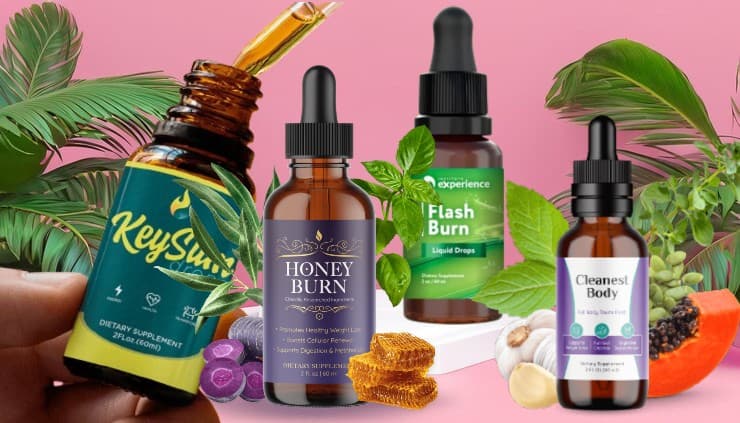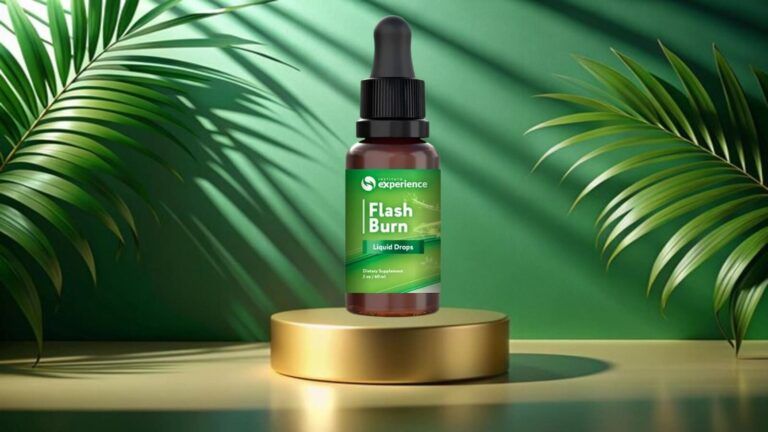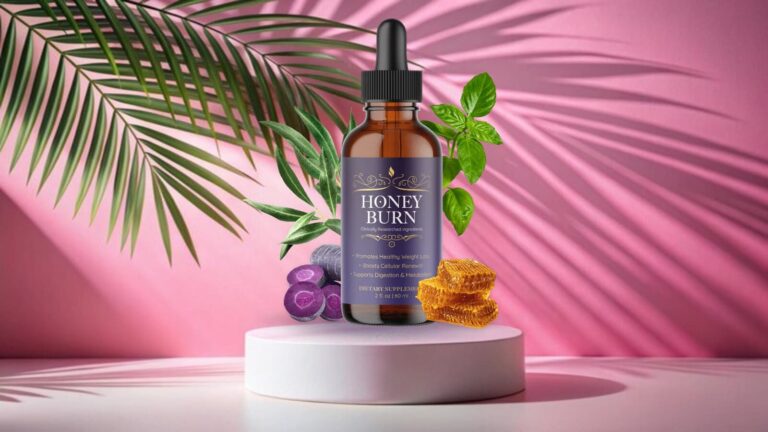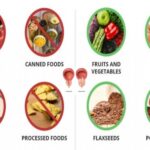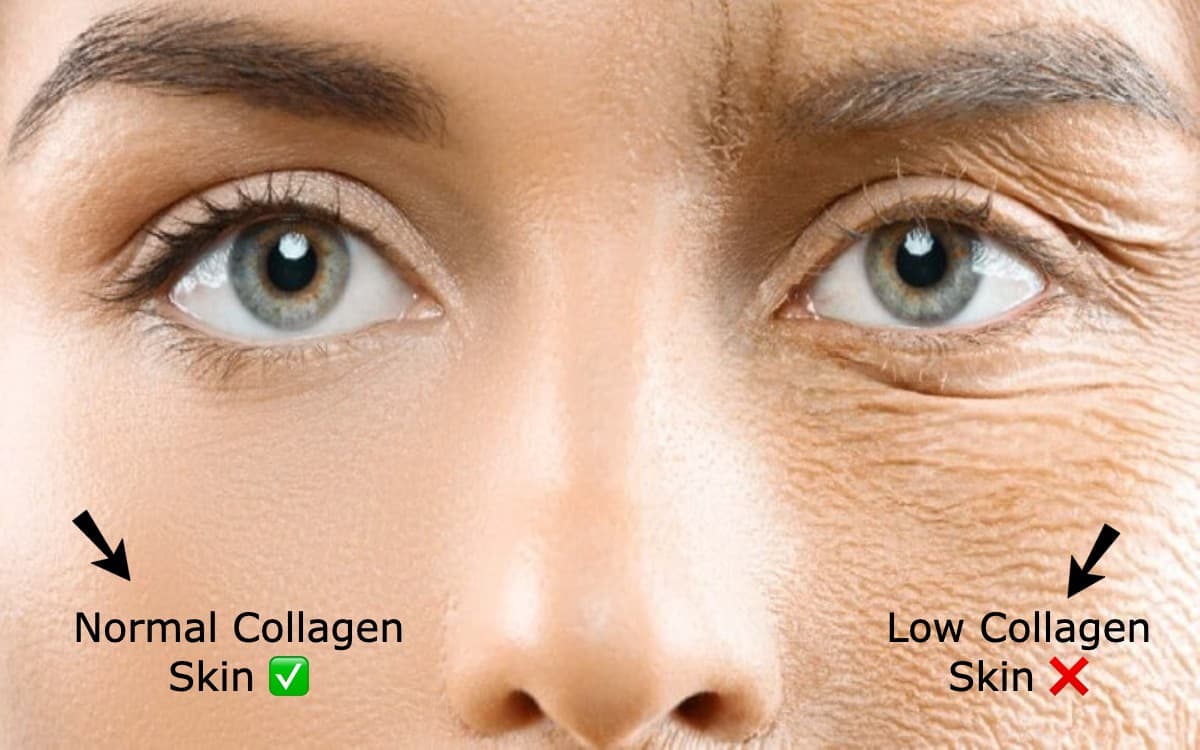
Collagen is the most abundant protein in the human body and is essential for beautiful, youthful, and healthy skin.
As we age, our bodies produce less and less collagen, leading to sagging skin, fine lines and wrinkles, joint discomfort, weakened bones and muscles, digestive issues, and slower healing.
By the age of 60, most people have lost about 30% of their collagen, resulting in the visible signs of aging. Replenishing collagen levels can restore a more youthful appearance and improve whole body health.
Unfortunately, most people believe that painful injections or expensive medical treatments are the only solutions. However, you can naturally increase your collagen production through diet, lifestyle changes, and supplements.
This comprehensive guide on How to Increase Collagen Production Naturally Through Diet, will explore easy, affordable ways to boost your collagen for firmer skin, reduced wrinkles, eased joint pain, stronger nails and hair, and much more. Read on to unlock the fountain of youth that lives within!
I. What is Collagen and Why Do We Need It?
Collagen is the structural protein that holds the body together. It makes up 30% of total protein content and 75% of skin. Collagen gives skin its structure and firmness.
It also provides the framework for connective tissues throughout the body like joints, bones, muscles, hair, nails, blood vessels and organs.
There are at least 16 types of collagen in the human body, but 80-90% consists of types I, II, and III:
- Type I – Forms skin, scar tissue, tendons, organs and bone
- Type II – Forms cartilage and connects joints
- Type III – Forms blood vessels and organs
As the main component of connective tissue, collagen fibers strengthen and support the skin and internal organs. Think of collagen as the “glue” that holds the entire body together.
Also Read: Best Vitamins for Female Hair Growth
Collagen Keeps Us Youthful and Healthy By:
- Keeping skin firm, supple, smooth and elastic
- Supporting strong bones to avoid fractures and breaks
- Cushioning joints, reducing pain and inflammation
- Promoting gut health and healing leaky gut
- Strengthening hair and nails to boost growth
However, after the age of 25, collagen production drops by 1-2% per year. As the decline progresses, it leads to visible aging effects like wrinkles, sagging skin, and joint issues. Decreased collagen also impairs injury recovery, increases bone and muscle loss, and slows metabolism.
Boosting collagen supply can help reverse and protect against these age-related changes for an overall healthier, youthful you!
II. Benefits of Collagen
Increasing collagen intake provides whole body benefits beyond just better looking skin. Consuming more collagen promotes:
A. Skin and Anti-Aging Effects
- Smoothes fine lines and wrinkles
- Improves skin texture and brightness
- Increases skin firmness, elasticity and hydration
- Accelerates healing of wounds, scars and burns
- Protects from sun damage and premature aging
Clinical studies found taking just one gram of collagen daily significantly reduced signs of skin aging – including up to a 14% increase in skin moisture!
B. Joint Support
Rebuilding cartilage and collagen provides extensive joint and bone health benefits:
- Decreases joint inflammation and pain
- Increases flexibility and range of motion
- Speeds recovery from joint injuries
- Protects from osteoarthritis
- Strengthens bones to prevent fractures
In medical studies, collagen supplements reduced arthritis symptoms by 50-80%. They’ve also been shown to decrease bone loss during menopause by up to 84%.
C. Injury Prevention and Recovery
- Collagen aids recovery and healing from sports injuries
- Reduces exercise-induced joint and muscle pain
- Strengthens tendons and ligaments to prevent future injuries
- Accelerates wound closure with less scarring
Athletes report improved performance, less pain, faster recovery, and lower future injury rates when supplementing with collagen.
D. Gut and Digestive Health
Collagen helping heal leaky gut syndrome to improve:
- Nutrient absorption
- Bowel regularity
- Inflammatory bowel diseases
- Stomach ulcer healing
Glycine – one of collagen’s amino acids – also promotes restful sleep and calms anxiety.
E. Heart Health
- Strengthens arteries and blood vessels
- Lowers bad LDL cholesterol
- Reduces plaque buildup
- Normalizes blood pressure
- Prevents atherosclerosis and heart attack risk
III. Signs You May Need More Collagen
If you are experiencing any of the following, it may indicate your body needs more collagen:
A. Wrinkles and Fine Lines
Collagen keeps skin firm, supple, and resilient. As we lose collagen, skin sags and wrinkles become noticeable. Boosting collagen can reduce and prevent fine lines.
B. Weak or Brittle Nails
Nails contain collagen to keep them strong. Increasing collagen prevents cracked, brittle nails by supporting nail growth and health.
C. Joint Discomfort
Our joints have the highest collagen concentration in the body after skin. Declining collagen leads to joint deterioration, pain, and flexibility issues. More collagen protects and repairs cartilage.
D. Bone Loss
Collagen meshes with calcium to form bone matrix. With age, declining collagen contributes to porous, weaker bones that break easier.
E. Digestive Issues
Collagen helps maintain the intestinal lining that keeps undigested food and bacteria from entering the bloodstream (leaky gut). More collagen can heal irritated digestive systems.
F. Poor Wound Healing
Collagen facilitates quick and efficient healing. Low collagen causes slow recovery with increased scarring. Boosting collagen helps wounds mend faster with less scarring.
If any of the above resonates, your body likely needs supplemental collagen to restore youthful functioning. Keep reading to discover the top dietary sources!
Also Read: Alpine Ice Hack Pills To Lose Weight
IV. Foods That Increase Collagen Production
The following foods contain collagen-boosting nutrients like amino acids, vitamin C, copper, and antioxidants:
A. High in Vitamin C
Vitamin C activates cells that manufacture collagen and also prevents damage from free radicals.
Great vitamin C foods include:
- Citrus Fruits – oranges, grapefruit, lemons
- Bell Peppers
- Broccoli
- Strawberries
- Tomatoes
Aim for at least 100mg vitamin C daily from food and supplements. Consider adding a vitamin C serum topically too.
B. Contains Glycine and Proline
These amino acids are collagen’s building blocks. The body uses them to form new collagen fibers.
Top glycine and proline sources are:
- Bone Broth – extremely high in usable collagen
- Meat, Poultry, Fish
- Eggs
- Dairy Products like milk, cheese, yogurt
C. Rich in Vitamins A, E and Minerals
Antioxidants A and E guard against collagen-damaging free radicals. Copper and zinc are also vital for collagen production.
Great options include:
- Spinach – high in vitamin A
- Carrots – excellent source of vitamin A
- Avocado
- Sweet Potatoes
- Zinc & Copper foods – oysters, nuts, seeds, legumes, shellfish
Aim for zinc-rich foods 2-3 times a week and copper-containing foods daily.
V. Collagen Destroyers to Avoid
Just as important as consuming collagen-boosting foods is avoiding collagen-damaging substances like:
A. Sugar and Refined Carbs
Excess sugar in the blood through a high glycemic diet triggers advanced glycation end products (AGES) that break down collagen.
B. Excess Sunlight Exposure
UV radiation from the sun degrades collagen and elastin in the skin, causing premature aging.
C. High Cortisol Levels
Elevated cortisol increases inflammation and collagen breakdown. Managing stress levels can help optimize collagen.
D. Smoking (tobacco and vaping)
Cigarette smoke releases enzymes that damage collagen, elastin, and DNA in skin cells.
E. Excessive Alcohol
Alcohol dehydrates the body, increasing the appearance of wrinkles. It also produces skin-damaging free radicals.
Limiting these collagen destroyers through diet, lifestyle, skin protection, and avoiding unhealthy habits preserves and builds more healthy collagen.
VI. Other Lifestyle Strategies for More Collagen
In addition to diet, other lifestyle factors support natural collagen production:
A. Staying Hydrated
Drinking adequate water supports collagen production and gives skin a plumper, less wrinkled appearance.
B. Getting Regular Exercise
Working out boosts circulation and oxygen delivery to stimulate collagen growth. Just avoid excessive cardio which increases cortisol.
C. Managing Stress
Lowering elevated cortisol from chronic stress enables enhanced collagen remodeling. Adaptogens like ashwagandha also reduce anxiety.
D. Protecting Skin from Sun Exposure
Using SPF daily shields skin from UV damage that destroys collagen and accelerates aging. Wear wide-brimmed hats too.
E. Considering Collagen Supplements
If food sources are inadequate, quality collagen supplements provide missing amino acids to build new collagen. They may also block enzymes that degrade collagen. Look for hydrolyzed collagen peptides from grass-fed, pasture-raised animals. Start with 10-15 grams daily.
Combined with dietary antioxidants and vitamins, collagen supplements can effectively increase collagen density for youthful skin and better health in as little as 4-8 weeks.
Top 5 Nutrients To Boost Collagen Production
VII. Sample Recipes and Meals to Boost Collagen Production
Implementing more collagen-boosting foods into your routine is easy and delicious. Try these ideas:
Breakfast:
- Veggie Omelet – Eggs, tomatoes, spinach, onions, peppers
- Berry Smoothie – Collagen peptides, frozen berries, banana, milk/nut milk
- Avocado Toast – Sourdough bread, mashed avocado, sunny side egg
Lunch:
- Big Salad – Greens, carrots, peppers, mushrooms, chickpeas, lemon juice dressing
- Chicken & Rice Soup – Bone broth, chicken, rice/quinoa, vegetables
- Fish Tacos – Baked tilapia, corn tortillas, cabbage, avocado, cilantro
Snacks:
- Hummus with carrots, celery and red pepper strips
- Greek yogurt parfait with berries, nuts, cinnamon
- Apple slices with peanut or almond butter
Dinner:
- Broccoli Beef Stir Fry – Flank steak, broccoli, peppers, onions, garlic over rice
- Pork Tenderloin – Roasted sweet potato wedges and side salad
- Shrimp Fajitas – Sauteed peppers and onions with avocado
Beverages:
- Green Juice – Spinach, celery, cucumber, lemon, ginger, stevia
- Golden Milk – Turmeric, ginger, cinnamon, black pepper, nut milk
- Smoothie – Blueberries, banana, spinach, almond milk, collagen peptides
With smart food choices, strategic supplements, and positive lifestyle factors, restoring youthful collagen levels is easy and enjoyable!
Also Read: How Collagen Affects Skin Elasticity Over Time
Conclusion on How to Increase Collagen Production Naturally Through Diet
As we age, declining collagen production leads to wrinkles, sagging skin, joint pain, weakened nails and hair, injured muscles and bones, leaky gut, and slower healing.
Boosting collagen supply through strategic dietary choices provides the amino acids and vitamins needed to rebuild youthful collagen levels.
This restores skin elasticity, smooths wrinkles, eases joint discomfort, speeds injury recovery, strengthens nails and hair, heals leaky gut, supports stronger bones, and more.
Foods highest in collagen-stimulating nutrients include bone broth, vitamin C fruits/veggies, eggs, organ meats, citrus fruits, dark green vegetables, berries, avocado, nuts and seeds.
Avoiding collagen destroyers like sugar, excess sun, smoking, and high stress also optimizes collagen regeneration. Staying active, drinking enough water, managing stress, and taking collagen supplements provides added anti-aging benefits.
With a consistent focus on collagen-supporting lifestyle behaviors, regaining a youthful supply is simple and attainable at any age. Don’t resign yourself to looking older and feeling unhealthy.
Choose to rebuild your collagen stores starting today. Your skin, joints, bones, digestion, physical abilities, hair and nails will thank you!
FAQs: Frequently Asked Questions on How to Increase Collagen Production Naturally Through Diet
What is the best collagen supplement?
Look for a multi-collagen complex containing types I, II, III, V and X from grass-fed, pasture-raised bovine or marine sources. Hydrolyzed collagen peptides are most bioavailable. Dosages between 10-15 grams daily are ideal.
When is the best time to take collagen?
Take collagen supplements first thing in the morning or before bed on an empty stomach. This ensures maximum absorption by allowing slower digestion compared to with food.
How long does it take for collagen supplements to work?
Improvements in skin, hair, nails, joints and other collagen-based tissues are noticeable typically within 4-8 weeks. Maximum benefits often occur around the 3-6 month mark with continued use.
Can too much collagen be harmful?
Unless you have a specific sensitivity, collagen is very safe even at higher doses. Moderately increasing collagen intake almost always provides helpful anti-aging, joint support and digestive benefits with very minimal risk.
Do collagen pills work for wrinkles?
Yes! Clinical studies confirm consistent use of collagen supplements reduces wrinkles, boosts skin moisture and elasticity, smooths fine lines, and thickens both the dermis and epidermis for visibly improved appearance.
What destroys collagen?
Factors that degrade collagen include excessive sugar consumption, high stress, nutrient deficiencies, smoking, sun overexposure, normal aging after 25 and health conditions like autoimmunity. Protecting collagen stores is vital!
Which foods are highest in collagen?
The richest natural food sources of collagen include bone broth, organ meats like liver, egg whites, fish skin and scales, spirulina, blackberries, raspberries and citrus fruits. A balanced diet helps, but targeted supplementation ensures you get enough.
References
iZdzieblik, D. et al. “Collagen peptide supplementation in combination with resistance training improves body composition and increases muscle strength in elderly sarcopenic men: a randomised controlled trial.” The British Journal of Nutrition 114.6 (2015): 887-900. this Study
- Asserin, J. et al. “The effect of oral collagen peptide supplementation on skin moisture and the dermal collagen network: evidence from an ex vivo model and randomized, placebo-controlled clinical trials.” Journal of Cosmetic Dermatology 14.4 (2015): 291-301. https://onlinelibrary.wiley.com/doi/10.1111/jocd.12174
- Clark, K. L. et al. “24-Week study on the use of collagen hydrolysate as a dietary supplement in athletes with activity-related joint pain.” Current Medical Research and Opinion 24.5 (2008): 1485-1496. https://www.tandfonline.com/doi/abs/10.1185/030079908X291967
- Borumand, Maryam, and Sara Sibilla. “Effects of a nutritional supplement containing collagen peptides on skin elasticity, hydration and wrinkles.” Journal of medical nutrition and nutrients 2.1 (2015): 28-36.https://www.researchgate.net/publication/285571442_Effects_of_a_Nutritional_Supplement_Containing_Collagen_Peptides_on_Skin_Elasticity_Hydration_and_Wrinkles


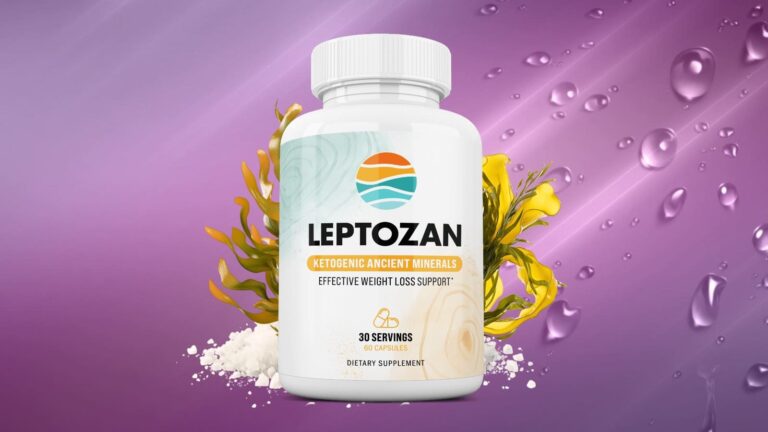


![Struggling With Sleepless Nights? This Patch Works in 30 Minutes—Guaranteed 9 I Cant Sleep What Do I Do? ] Wacth This Video] Sleep Secret](https://healthfactsjournal.com/wp-content/uploads/2025/04/i-cant-sleep-what-do-i-do-768x480.jpg)

